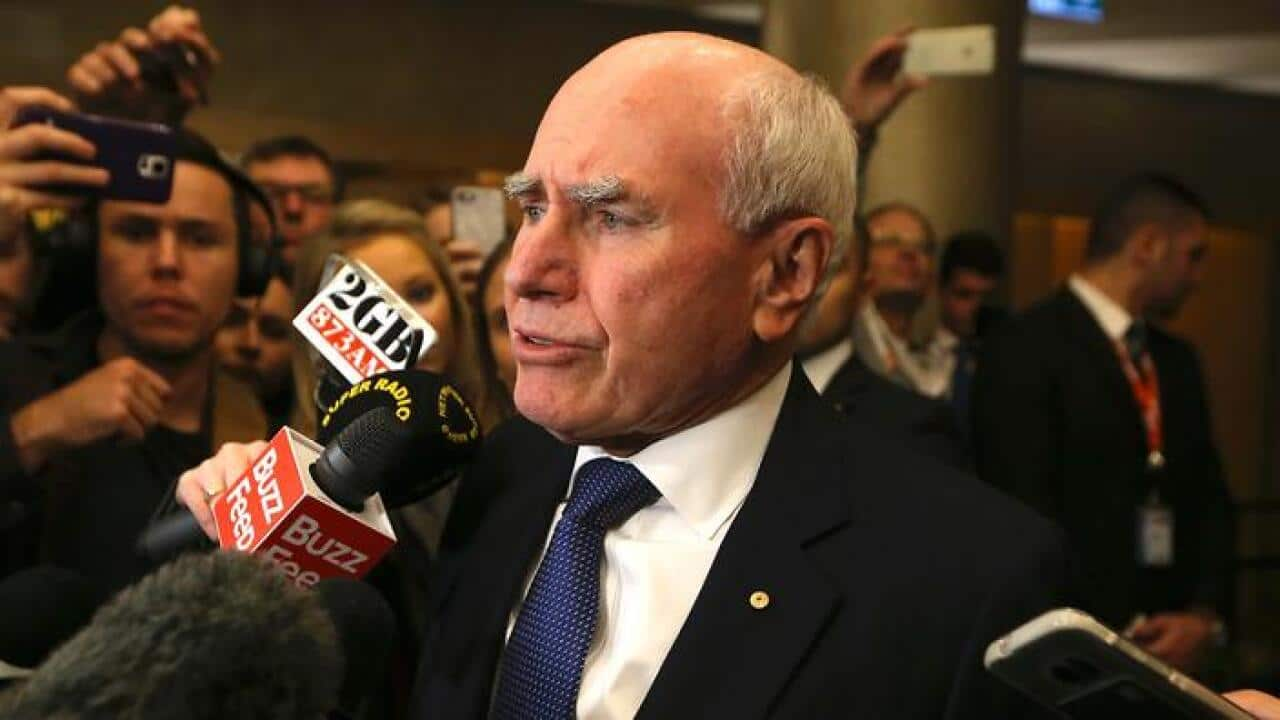The Iraq invasion had "turbo-charged" terrorist groups like Al Qaeda and Islamic State and both Mr Howard and former foreign minister Alexander Downer should be held to account, Tasmanian MP Andrew Wilkie said, renewing his call for a third and broader Australian inquiry into the war.
"I will take it up with whoever is the next prime minister," he told reporters in Melbourne.
Mr Wilkie resigned from the Office of National Assessments in protest over the government's decision to join in the Iraq war.
"Frankly, there are a number of political leaders who in my opinion have blood on their hands. The Bali bombing of 2005 would not have occurred if we haven't have joined in the invasion of Iraq," he said.
"The Lindt Cafe siege would not have occurred if we hadn't helped create the circumstances for the rise of Islamic State."
Mr Wilkie said the then Prime Minister John Howard took Australia to war on false information.
"Every time it's said that Iraq had a massive arsenal of weapons of mass destruction and it was cooperating with Al Qaeda, it knew that that was not the case — that it was either clearly not the case or at best for them it was ambiguous," he said.
"They took us to war on a lie.
"No wonder John Howard and Tony Blair and George W Bush do stand accused of war crimes.
"I'd like them to see an international court. I would like them to defend their position and try to prove their innocence because, all of those people who do accuse them of war crimes I think make a pretty compelling case."
The Howard government backed the 2003 US-led war on Iraq based on the best information available and took full responsibility for its decision, says Foreign Minister Julie Bishop.
A seven-year UK inquiry into the invasion and unsuccessful search for weapons of mass destruction found the threat posed by dictator Saddam Hussein was overplayed, intelligence was flawed and the legal basis for the war was unsatisfactory.
A March 2003 diplomatic cable sent by the British Embassy in Canberra to the Foreign & Commonwealth Office outlines the UK view of the Australian parliamentary debate at the time.
It records how Mr Bush called Mr Howard on March 18 to make the formal request for an Australian role in a future military intervention in Iraq.
Mr Howard convened a cabinet meeting ahead of a live national television broadcast announcing Australia's decision to commit troops.
He also agreed to table in parliament the text of legal advice given to the government.
Mr Howard described the advice as being "consistent" with that given to the UK government which - the cable said - the embassy had "fed in to his office this morning and which he also tabled".
Labor, led by Simon Crean, condemned the coalition government's decision arguing "that involvement would spawn terrorism and greatly increase the risk of terrorist attacks on Australian soil", the cable said.
Howard, Libs stand by Iraq war
Former prime minister John Howard says there were errors in the intelligence which led to Australia's role in the 2003 Iraq war, but he stands by the decision to join the conflict.
A seven-year UK inquiry into the invasion and unsuccessful search for weapons of mass destruction found the threat posed by dictator Saddam Hussein was overplayed, intelligence was flawed and the legal basis for the war was unsatisfactory.
Mr Howard said Hussein had a long-term goal to reconstitute his weapons of mass destruction program once the threat of sanctions disappeared.
"Yes, it was subsequently discovered there were no stockpiles, but with equal conviction it has to be remembered that the intelligence advice ... was that there were stockpiles," he said.
"There were errors in intelligence but there was no lie."
Mr Howard said he was happy to be accountable for what occurred and regretted the loss of life in military conflict.
"But I believed that the decision to go into Iraq was justified at the time and I don't resile from that because I thought it was the right decision," Mr Howard said.
No Australians died in action in the war between July 2003 and July 2009, although two were killed in accidents.
Asked whether he should offer an apology to military families, Mr Howard said: "Obviously I am sorry for the wounds or injuries that anybody suffered.
"But if you're saying to me do I apologise for the decision that I took, the core decision? Well, I defend that decision."
The former Liberal leader said he did not share the view that the current Middle East conflict was the direct consequence of the 2003 war.
Share
